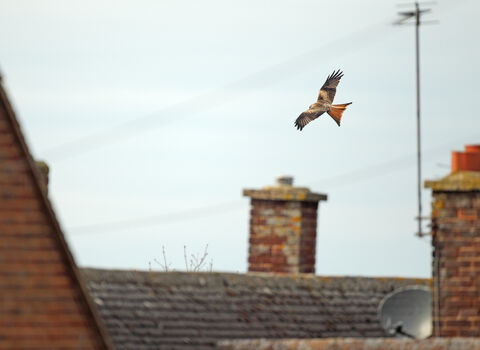The Planning and Infrastructure Bill (PIB) is a piece of legislation that seeks to make several changes to the way new developments (such as homes) are planned, designed and built in England.
Since the Bill was first published in spring, we’ve consistently raised concerns that it weakens legal environmental protections.
The Bill poses a threat to wildlife
Of particular concern has been Part 3 of the Bill. This introduces a new way for developers to address the environmental impacts of developments on legally protected wildlife and wild places through the creation of Environmental Delivery Plans (EDPs).
These EDPs would each assess and address specific environmental impacts of development across a whole area (at a ‘strategic level’) instead of on a development project by development project basis. These environmental impacts could cover a whole range of effects from water and air pollution to removing wildlife habitats.
If this approach is applied to wildlife, it could have a devastating effect. Without taking a site approach, the impact on many legally protected species cannot be properly measured and mitigated against.
With your support, we have worked hard to improve the Bill. In July, the UK Government brought forward a series of changes that strengthen the guard rails for nature. However, as identified by the Government’s environmental watchdog – the Office for Environmental Protection – whilst the amendments make a win for nature a "more likely prospect" the Bill will still "lower environmental protection".
We now have a chance for nature in the Bill
Peers in the House of Lords are nearing the end of their deliberations on the PIB. Debates have run long into the night (up until midnight in some cases) and we are grateful for all those who have spoken up for our wildlife and wild spaces. This week, peers have voted to improve the Bill even further, agreeing key amendments numbered 130 and 94.
MPs will need to ensure these changes remain in the Bill: without their support they will not become law. You can help us ensure they don’t get kicked out by contacting your local MP here.
Amendment 130: damage limitation
We at The Wildlife Trusts recognise that a strategic approach to addressing the environmental impact of development has potential if the right safeguards are in place. Many Wildlife Trusts have already provided strategic solutions through ‘nutrient neutrality’ where nutrient pollution from developments has been addressed by creating new wildlife reserves. Operating strategically can help deliver bigger and better nature projects – not just addressing pollution but providing a springboard for wildlife to recover too.
But the evidence also shows us that this kind of approach would be devastating for wildlife if used inappropriately. For example, without a site level environmental assessments bat roosts could be placed at increased risk.
Amendment 130 is important because it limits the types of environmental impact to which this new strategic approach can be applied. It should ensure the approach is only applied to those issues where we know it could work to deliver the crucial win-win for wildlife and for development.
Amendment 94: protections for globally important chalk streams
England has 85% of the world’s chalk streams and these globally rare and irreplaceable habitats currently have no specific protections from development.
Therefore, we are also delighted that the House of Lords voted for amendment 94 to give new protections to chalk streams elsewhere in the Planning and Infrastructure Bill.
Your MP can make a difference for wildlife
The PIB will be debated by MPs again in early November. We need your help to ensure that they vote for nature and don’t let the Government kick out these vital amendments agreed by the Lords.


